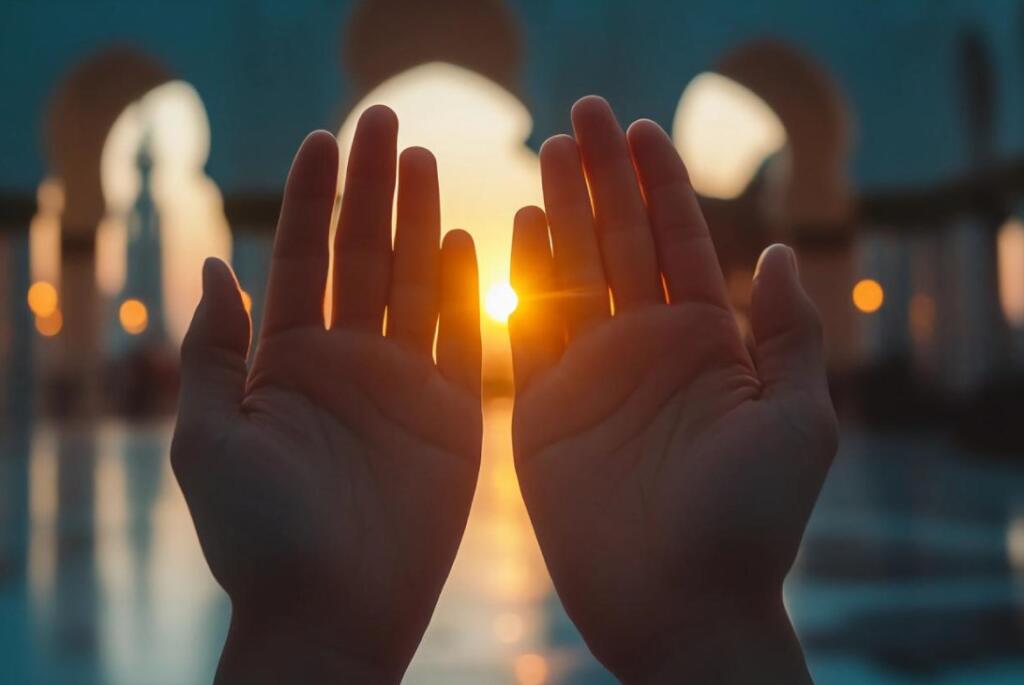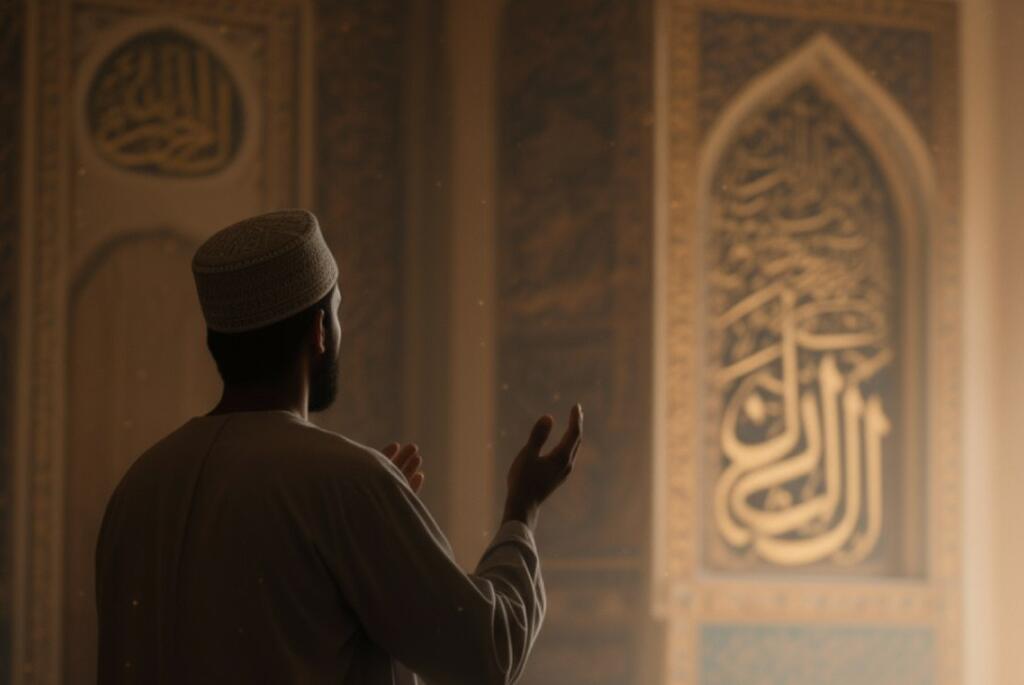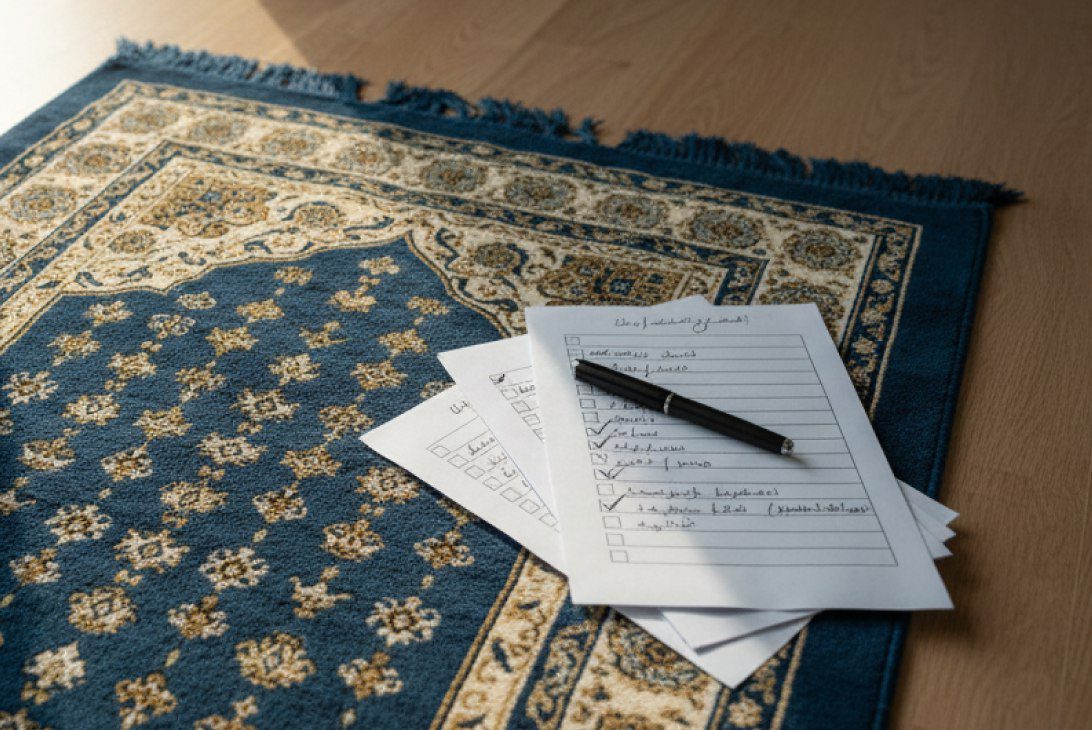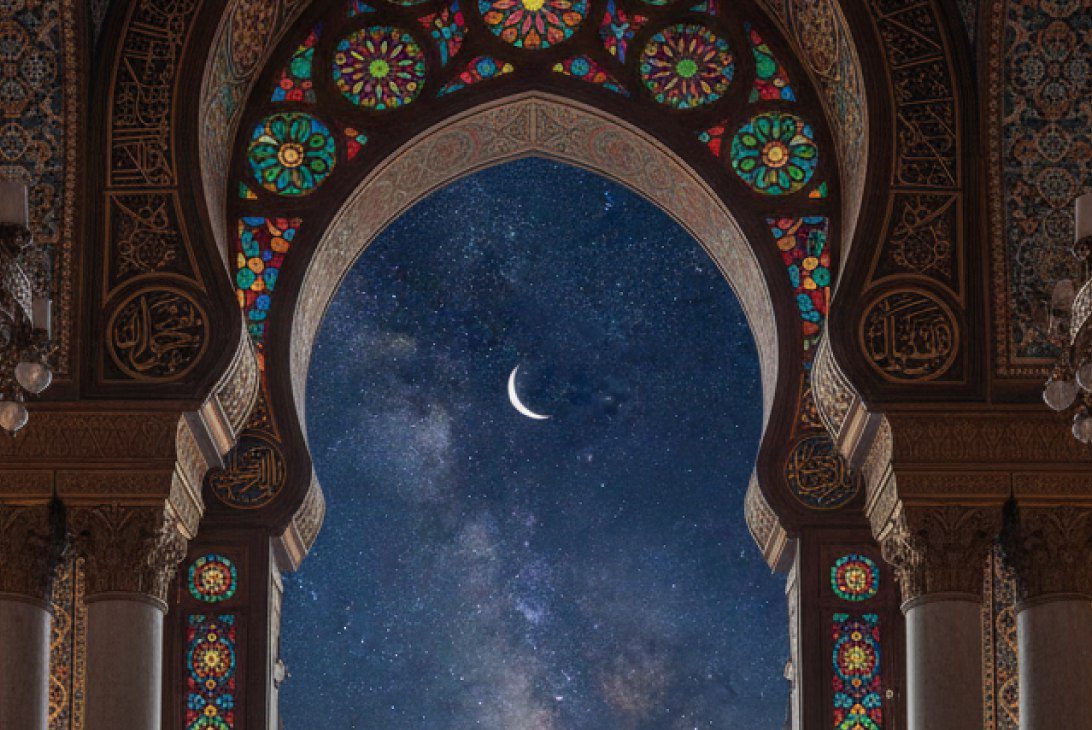1. Upholding the Command of Allah
Allah ﷻ commands us in His Book: “And your Lord said, ‘Call upon Me; I will respond to you. Surely those who are too proud to worship Me will enter Hell, fully humbled” (40:60).
Duʿā’ is a sign of our humility, the signal from a heart that realises its need and dependence on its Creator. It is an act of submission, love and trust in the One who hears and responds. True servitude begins with recognising our constant need for Allah. It is only those who are blinded by pride that turn away from calling upon their Lord.
What often holds us back from frequent duʿā’ is a subtle sense of self-reliance; that we’re able to manage on our own. But this very attitude is a quiet form of arrogance. In this verse, Allah ﷻ connects neglecting duʿā’ with pride, warning that such pride leads to humiliation in the hereafter.
2. It is the Best Form of Worship
The Messenger of Allah ﷺ said, “The best worship is duʿā’” (Ḥākim). He ﷺ also said, “There is nothing more honourable to Allah than duʿā’” (Aḥmad).
Imām al-Qasṭalānī (raḥimahullāh) said: “Since duʿāʾ and humble supplication are among the noblest forms of worship, Allah — out of His grace and generosity — commanded His servants to engage in them and guaranteed them a response.”
Duʿā’ holds a unique, elevated status because it expresses a believer’s deepest humility, dependence, and devotion to Allah. Of all acts of worship mentioned in the Sunnah — prayer, fasting, giving charity, and reciting Qur’ān — only duʿā’ is described as worship.’ He ﷺ said, “Indeed, duʿā’ is worship” (Aḥmad). This exclusive emphasis shows its central role in the believer’s relationship with Allah.
3. It Is the Essence of Worship
The Messenger of Allah ﷺ said, “Duʿā’ is the essence (mukhkh) of worship” (Tirmidhī).
The word mukhkh in Arabic means “brain”: the control center of the human body. Just as the brain coordinates the body’s actions, duʿā’ gives direction and meaning to all acts of worship. It reflects our weakness, desperation, and complete reliance on the All-Powerful. It is the purest form of tawḥīd, affirming that only Allah can help, guide and provide.
4. Allah Loves When You Ask
The Messenger of Allah ﷺ said, “Allah is angry with those who do not make duʿā’ to Him” (Tirmidhī).
This ḥadīth is a strong warning. Duʿā’ is the foundation of worship and a sign of humility and servitude. Allah loves to be asked. While people grow annoyed when asked repeatedly, Allah becomes angry when you stop asking Him. A poet beautifully says:
“Allah becomes angry if you stop asking Him,
While the son of Adam gets angry when you ask him.”
5. It Brings Relief and Provision
The Messenger of Allah ﷺ said, “Whoever is afflicted by a pressing need and goes to the people to get it fulfilled, his need will not be fulfilled. Whoever is afflicted by a pressing need and goes to Allah to get it fulfilled, Allah will provide for him, sooner or later” (Tirmidhī).
This ḥadīth reminds us that true relief comes only from Allah, not from the people. Depending on others will inevitably lead to disappointment, while turning to Allah will always bring provision and ease at the time He knows best.
6. It is a Path to Forgiveness
Allah ﷻ says in a ḥadīth qudsī, “Son of Ādam, as long as you call upon Me and hope in Me, I will forgive you despite what you do, and I do not mind” (Tirmidhī).
This ḥadīth reveals Allah’s endless mercy. So long as you keep calling upon Him and never abandon hope, He will forgive, no matter how great your sins may be. Even if your past is filled with mistakes, Allah does not hesitate to forgive the one who sincerely turns to Him. He says, ‘I do not care,’ meaning no sin is too big for His mercy, as long as they seek Him with a hopeful, repentant heart.
7. It Repels Bad Decree
The Prophet ﷺ said, “Nothing repels divine decree except supplication, and nothing increases lifespan except righteousness” (Tirmidhī). He also said, “Caution is of no benefit against divine decree (i.e. no amount of caution or careful planning can prevent what Allah has decreed for a person). Duʿā’ benefits what has already happened and what is yet to come. Indeed, calamity may descend, and it is met by duʿā’, and the two struggle with each other until the Day of Resurrection” (Ḥākim).
Duʿā’ is your defence against potential calamities lying in wait and a remedy for present trials. Whether facing sickness, loss or hardship, duʿā’ brings relief.
Whether it is a trial that is overwhelming you today — a health scare, a broken relationship, an unexpected loss — or something looming in the unseen future, duʿā’ is the first step towards finding a way out. The people of duʿā’ do not wait for calamities to strike. They make duʿā’ part of their daily life: seeking Allah’s help in present difficulties, while fortifying themselves against tomorrow’s unknown tests. In the face of destiny, duʿā’ is your defense; before, during, and after the storm.
Ibn al-Qayyim (raḥimahullāh) said: “Duʿā’ is one of the most beneficial remedies. It is the enemy of calamity; it repels it, cures it, prevents its occurrence, and alleviates it or reduces it if it befalls (a person). It is the weapon of the believer. There are different states between duʿā’ and calamity. Duʿā’ has three positions in relation to calamity:
- The duʿā’ is stronger than the calamity, so it repels it.
- The duʿā’ is weaker than the calamity, so the calamity overcomes it and afflicts the servant. However, it may reduce its intensity, even if the duʿā’ is weak.
- The duʿā’ and the calamity confront each other and struggle, each trying to overpower the other.”
8. It is the Key to all Good
The Messenger of Allah ﷺ said, “Whoever among you has the door of duʿā’ opened for him, the doors of mercy have been opened for him. Allah is not asked for anything more beloved to Him than being asked for well-being. Duʿā’ benefits what has already happened and what is yet to come. So, O Servants of Allah, make as much duʿā’ as you can!” (Tirmidhī).
Al-Muṭarrif ibn ʿAbdillah (raḥimahullāh) said: “I reflected on what encompasses all goodness — and found that goodness is abundant: fasting, prayer, and more. But all of it is in the Hand of Allah, and you have no power to attain what is in the Hand of Allah except by asking Him — and He gives it to you. So I realised that the essence of all goodness is duʿā’.”
Ibn al-Qayyim (raḥimahullāh) said: “If every good is rooted in divine success (tawfīq), and this is entirely in the Hand of Allah, and not the servant, then its key is duʿāʾ, neediness, sincere turning to Allah, and having both hope and fear of Him. So, whenever Allah gives a servant this key, it means He wants to open the door of good for him. But if He turns him away from this key, the door to goodness will remain shut before him.”
“I fear being prevented from making duʿā’ more than I fear being denied a response.” – Abū Ḥāzim al-Aʿraj (raḥimahullāh)
9. Duʿa: A Sign of Strength
The Prophet ﷺ said, “The most incapable person is the one who fails to make duʿā’; and the most miserly person is the one who is stingy in giving salām” (Ibn Ḥibbān).
This ḥadīth teaches us the true meaning of helplessness and shows who is truly the most powerless. It is not the blind, the disabled, or the physically weak, but rather the one who is unable to ask and plead sincerely with the Creator, as the Prophet ﷺ clearly stated.
Unfortunately, many people misunderstand this. They think duʿā’ is only for the weak or the helpless, a last resort for those who don’t strive hard. But in reality, duʿā’ is a sign of strength and connection, not weakness or laziness.
10. Guaranteed Acceptance
The Messenger of Allah ﷺ said, “No Muslim makes duʿā’ which does not entail a sin or the severing of ties of kinship, except that Allah grants him one of three things:
- He fulfils his request.
- He stores it for him in the hereafter.
- He averts from him a similar evil.”
The Companions (radiy Allāhū ʿanhum) said, “If that is so, we will make duʿā’ even more.” He ﷺ replied, “Allah will respond even more” (Aḥmad).
Every sincere duʿā’ is answered, just not always in the way or time we expect. Whether fulfilled now or stored for later, it always brings good. Keep asking with hope and never stop.
“Sincere hearts and righteous supplications are the armies which can never be defeated and the troops that are never forsaken.” – Ibn Taymiyyah (raḥimahullāh)






